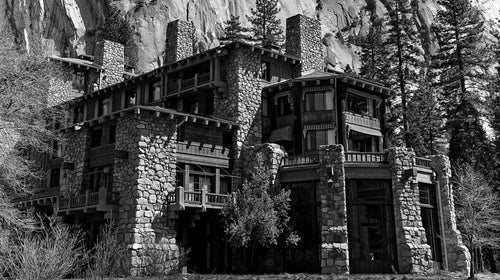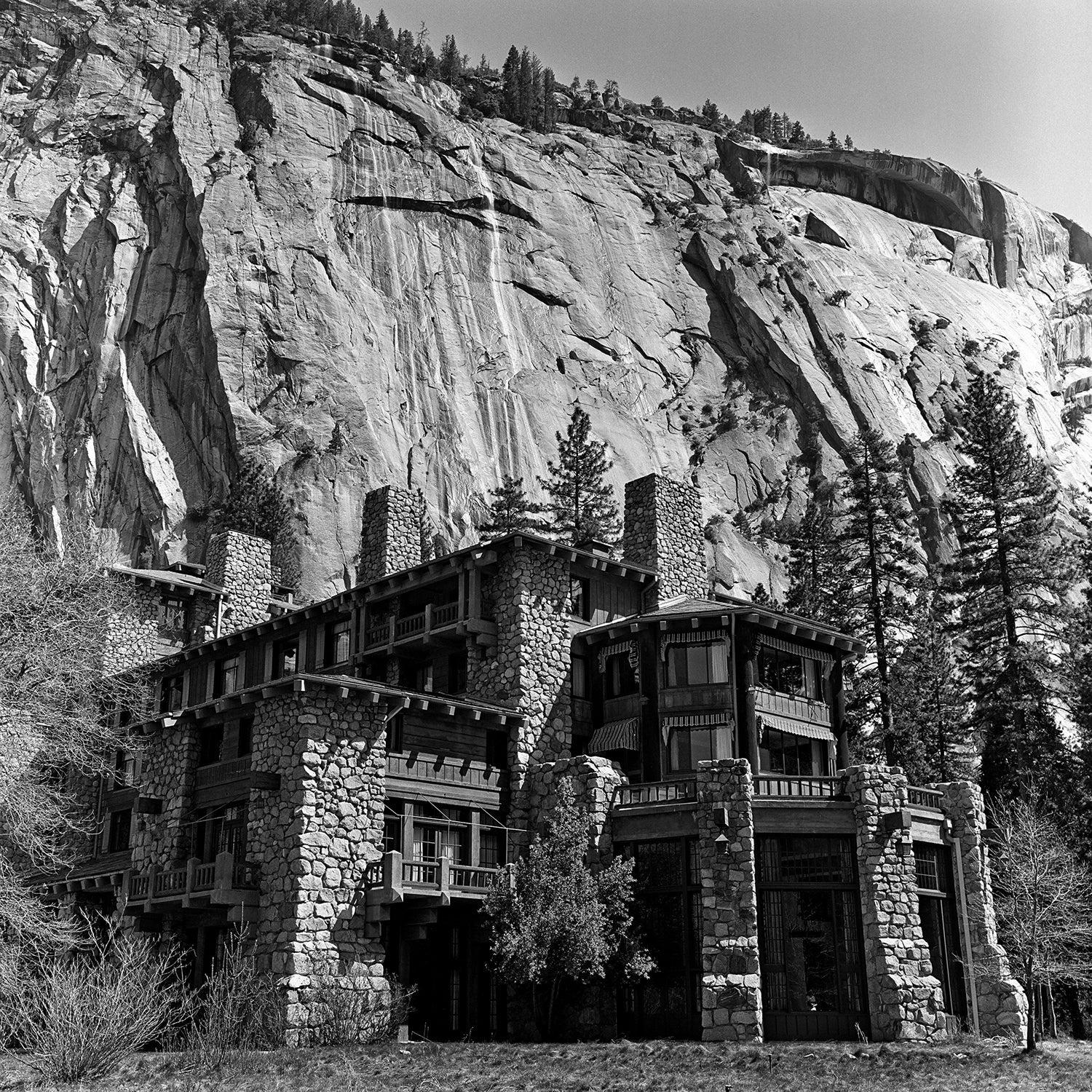The last time you were in Yosemite, you may have noticed that many of the classic hotels and restaurants had new names—there were tarps over the entrance signs to the Ahwahnee and the Wawona hotels, assigning odd monikers like “The Majestic” and “Big Trees” in their stead. This three-and-a-half-year identity crisis was due to a trademark dispute between Yosemite’s former concessionaire, , on one side and the��new concessionaire, , and the National Park Service��on the other.
Delaware North had, during the decades that it held the contract as the Park’s concessionaire,��quietly trademarked many of Yosemite’s most famous names, including the Ahwahnee Hotel, Curry Village, the Wawona Hotel, and Badger Pass ski Area. They even trademarked the name Yosemite National Park and since 2016, according to the , park products like hats and coffee mugs have read simply: Yosemite. When Delaware North’s contract expired in 2015, they wanted $51��million for their alleged intellectual property.��
In a $12 million settlement announced Monday, Yosemite National Park got��the right to use the original names of some of its most iconic hotels and attractions, many of which, it’s worth noting, were derived from��native ��names, the tribe that was indigenous to the area.��Effective July 15, all trademarks and service marks��transfer from Delaware North to Aramark.��The National Park Service can also return to��using hundreds of other trademarked monikers and phrases, including the classic “Go Climb a Rock” slogan that’s graced tens of thousands of T-shirts bought at the Yosemite Mountaineering School and the Half Dome logo.
And under Aramark’s contract with the National Park Service, those trademarks and service marks will transfer (at no cost) back to the National Park Service once Aramark’s contract ends. The��settlement to Delaware North includes $3.84 million paid from the U.S. government. The rest of the money comes from Aramark.��
“Some people ask why the government got involved and paid the money,” says Scott Gediman, the park’s spokesman. “My answer is that the lawsuit was active for three-and-a-half years and the attorneys on both sides realized it was time to settle. It is not a small sum of money, but it could have dragged on for years with no resolution.”��
Word of the settlement spread quickly in the park. “I’ve been with Yosemite for 23 years, and I’ve never seen such jubilation,” says Gediman. “People were clapping and in tears—there was a very emotional reaction. I knew our staff and guests would be excited, but had no idea how incredibly moving the reaction would be. The settlement is not just about signs and logos. We’ve ensured that symbols of the park’s history will remain the property of the American people.” Ken Yager, president of Yosemite Climbing Association and 43-year Valley resident, was more pragmatic.��“I think that locals never embraced the new names,” Yager says. “I continued to call the Ahwahnee Hotel ‘the Ahwahnee.’”��
Immediately after the settlement, Yosemite’s employees got to work removing the temporary signage they’d erected in 2016. New menus, directories, website listings, and merchandise like��ball caps,��souvenir shot glasses, and��T-shirts��now reflect the traditional names.��
The precedent is significant for other parks who are dealing with trademarks and concession contracts. A similar battle is being waged at Grand Canyon National Park. In reaction to the lawsuit, the state of California has passed the , a law that forbids park concessionaires from claiming or trademarking any of the cultural, recreational, or historic resources in the areas where they operate. “This is good for Yosemite National Park,”��says��Gediman. “The money the U.S. government spent will protect other state, local, and national parks. For that reason alone it is a good deal.”


